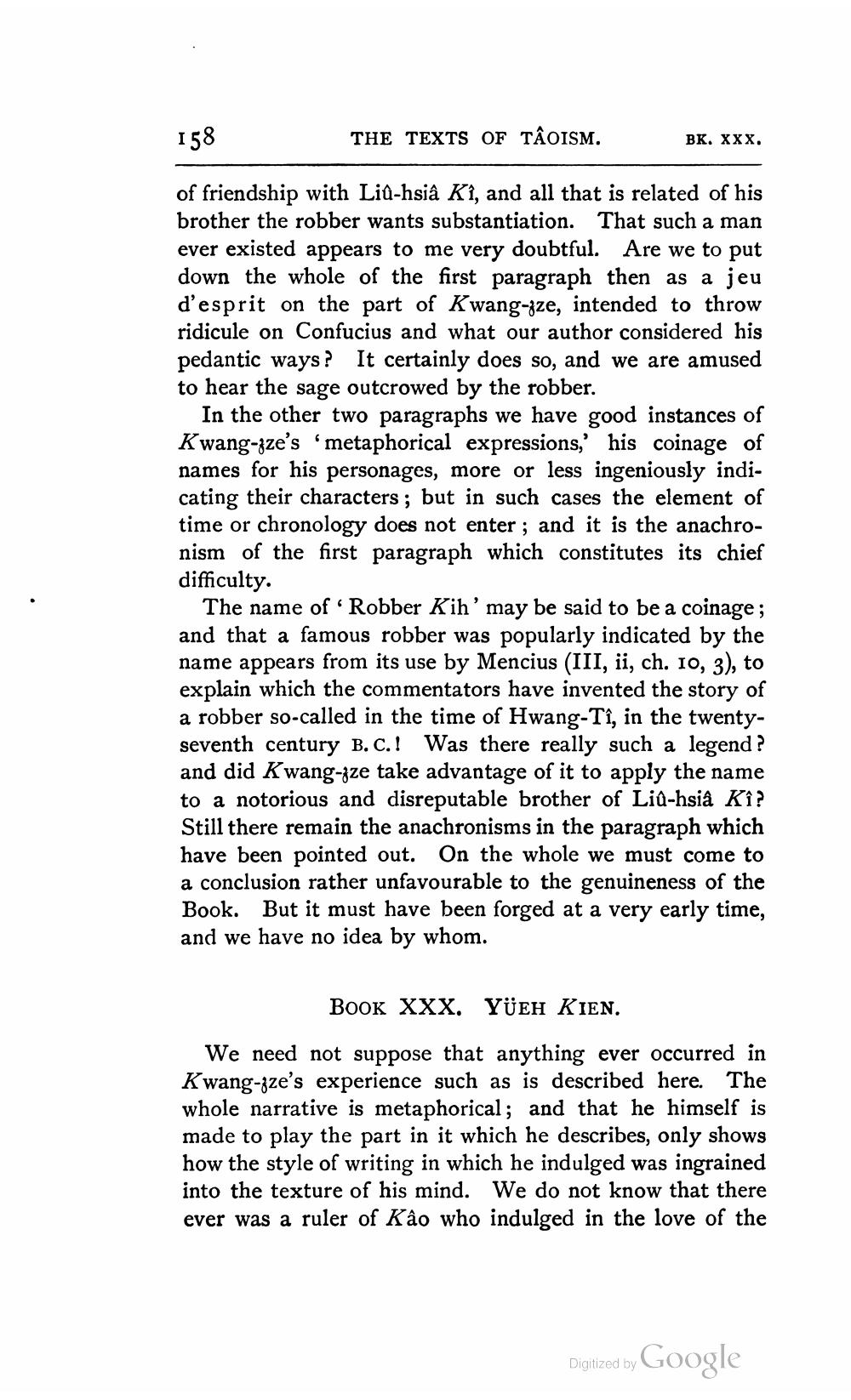________________
158
THE TEXTS OF TÂOISM.
BK. XXX
of friendship with Lill-hsiâ Kỉ, and all that is related of his brother the robber wants substantiation. That such a man ever existed appears to me very doubtful. Are we to put down the whole of the first paragraph then as a jeu d'esprit on the part of Kwang-zze, intended to throw ridicule on Confucius and what our author considered his pedantic ways? It certainly does so, and we are amused to hear the sage outcrowed by the robber.
In the other two paragraphs we have good instances of Kwang-zze's 'metaphorical expressions,' his coinage of names for his personages, more or less ingeniously indicating their characters; but in such cases the element of time or chronology does not enter; and it is the anachronism of the first paragraph which constitutes its chief difficulty.
The name of Robber Kih' may be said to be a coinage; and that a famous robber was popularly indicated by the name appears from its use by Mencius (III, ii, ch. 10, 3), to explain which the commentators have invented the story of a robber so-called in the time of Hwang-Tî, in the twentyseventh century B.C.! Was there really such a legend? and did Kwang-zze take advantage of it to apply the name to a notorious and disreputable brother of Lill-hsiâ Kî? Still there remain the anachronisms in the paragraph which have been pointed out. On the whole we must come to a conclusion rather unfavourable to the genuineness of the Book. But it must have been forged at a very early time, and we have no idea by whom.
BOOK XXX. YüEH KIEN.
We need not suppose that anything ever occurred in Kwang-zze's experience such as is described here. The whole narrative is metaphorical; and that he himself is made to play the part in it which he describes, only shows how the style of writing in which he indulged was ingrained into the texture of his mind. We do not know that there ever was a ruler of Kâo who indulged in the love of the
Digitized by Google




